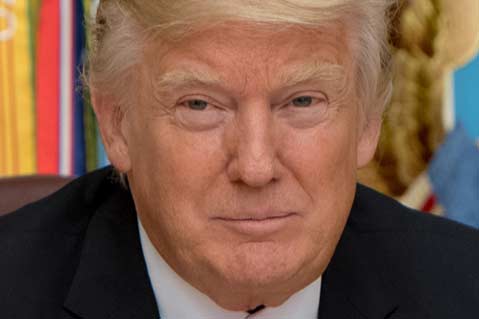News March 15, 2018
Trump Considers Sweeping Tariffs on Chinese Goods
President Donald Trump is reportedly seeking to impose tariffs on up to $60 billion of Chinese imports, targeting the technology and telecommunications sectors in a move that could have implications for the promotional products industry.

The tariffs are part of an intellectual property investigation which began last August, and could come “in the very near future,” Reuters reported. While the tariffs would initially target information technology, consumer electronics and telecoms, they could be much broader and eventually include 100 products, Reuters said.
Tariffs on imported Chinese goods have the potential to raise the price of promotional products sold in North America, as the vast majority of items available here continue to be produced abroad, particularly in China. “Obviously as an industry, we don’t want tariffs that will hurt demand for our products,” said Jason Robbins, CEO of Top 40 distributor ePromos Promotional Products (asi/188515). “I’m not sure these proposed tariffs on the small technology items we sell are going to have major impact toward Trump’s goals for the tariffs. If the tariffs do reduce demand, I’m concerned that it also reduces the workload of our domestic factories who decorate these items.”
Chinese foreign ministry spokesman Lu Kang said China-U.S. trade relations should not be a zero-sum game, urging the two countries to use “constructive” means to manage tension. “We have said many times that China resolutely opposes any kind of unilateral protectionist trade measures,” Lu told reporters. “If the United States takes actions that harm China’s interests, China will have to take measures to firmly protect our legitimate rights.”
Lobbyists in Washington have expressed concern that the tariffs would also include other labor-intensive consumer goods sectors such as apparel, footwear and toys. “We’re not talking about fancy cashmere sweaters – we’re talking about cotton T-shirts and jeans and shoes that kids wear for back-to-school,” Hun Quach, a trade lobbyist for the Retail Industry Leaders Association, told Reuters. “Alarm bells are ringing. Higher tariffs on these products would hurt American families.”
Chinese high technology companies are in Trump’s crosshairs due to investment policies that effectively force U.S. companies to give up their technology secrets in exchange for being allowed to operate in the country. The Trump administration is also considering imposing investment restrictions on Chinese companies over and above the heightened national security restrictions. The U.S. Trade Representative’s office had presented Trump with a package of $30 billion in tariffs last week, but Trump told aides that it was not high enough, Politico reported.
“At first glance, this might not hurt my business since our products are not targeted in the proposed tariff schedule,” said Randy Chen, who is the president of Impex International Inc., which provides direct import and warehousing services for more than 100 promotional products industry suppliers. “We are in a very price-conscious market so I believe the impact will be minimal. Recently, additional tariffs on solar panels and raw metals haven’t hurt our business. I haven’t received negative feedback from our suppliers in China.”
However, Chen does believe one area of concern is the exchange rate as the U.S. dollar has become weaker against China’s currency. “Many of our suppliers are increasing prices on products to us,” Chen said.
